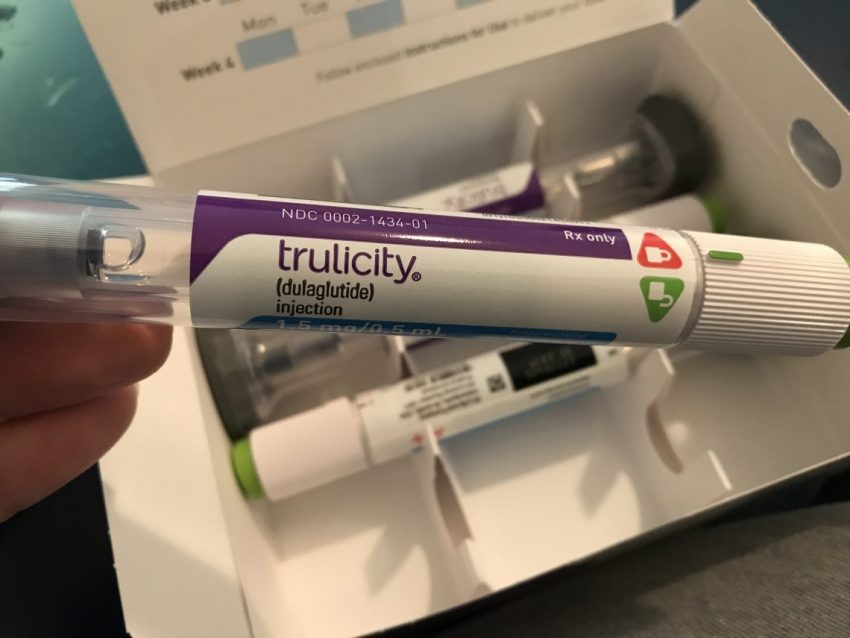Trulicity, a medication used primarily for managing Type 2 diabetes, has been at the center of significant legal action in recent years. As more users report adverse side effects, lawsuits against its manufacturer have surged. These lawsuits have been centralized by the Judicial Panel on Multidistrict Litigation (JPML) to streamline pretrial proceedings and improve efficiency. Understanding the current status and implications of these legal actions is crucial for patients and healthcare professionals alike as we move into 2024.
Background on Trulicity Lawsuits
Trulicity (dulaglutide) is a once-weekly injectable medication designed to help control blood sugar levels in adults with Type 2 diabetes. Despite its effectiveness, a number of patients have experienced severe side effects, leading to a wave of lawsuits. These lawsuits allege that the manufacturer, Eli Lilly and Company, failed to adequately warn users of the risks associated with Trulicity, including pancreatitis, kidney problems, and severe gastrointestinal issues.
The legal grounds for these lawsuits typically revolve around claims of negligence, misrepresentation, and failure to warn. Plaintiffs argue that Eli Lilly knew or should have known about the risks but did not provide sufficient warnings to patients and healthcare providers. This lack of transparency has led to significant harm for many individuals, sparking a series of legal challenges.
Centralization of Legal Actions
The JPML plays a critical role in managing complex litigation involving multiple plaintiffs across different jurisdictions. In the case of Trulicity lawsuits, the JPML decided to centralize these cases to a single federal court to streamline pretrial proceedings, reduce duplicative discovery, and prevent inconsistent rulings.
Centralization involves transferring all related cases to one court under the management of one judge. This process aims to make the litigation more efficient and less burdensome for both plaintiffs and defendants. For Trulicity lawsuit, this means that all pretrial activities, such as discovery and motions, are handled in a coordinated manner, which can expedite the overall process and lead to more consistent outcomes.
Current Status of Trulicity Lawsuits
As of the end of 2023, there are hundreds of Trulicity lawsuits filed across the United States. These cases have been consolidated into a multidistrict litigation (MDL) in the Southern District of Indiana, overseen by Judge Jane Magnus-Stinson. This centralization has allowed for more efficient handling of the pretrial process, including the exchange of evidence and expert testimonies.
Key developments in 2023 include several significant motions and hearings that have shaped the direction of the litigation. For instance, motions to dismiss certain claims have been ruled upon, and the scope of discovery has been defined. Additionally, several cases have moved closer to trial, with some settlements being reached out of court.
Legal Proceedings and Outcomes
The pretrial proceedings in an MDL involve several stages, including discovery, motions, and bellwether trials. Discovery is the process where both sides exchange evidence, including medical records, internal company documents, and expert reports. This phase is crucial for building a strong case, as it allows plaintiffs to gather the necessary evidence to support their claims.
Bellwether trials are representative cases selected to go to trial first. These trials help both sides gauge the strengths and weaknesses of their arguments and can often lead to settlements in other cases. In the Trulicity MDL, several bellwether trials are scheduled for 2024, and their outcomes will significantly impact the direction of the remaining cases.
Potential outcomes for plaintiffs include settlements, jury verdicts, or dismissals. Settlements are often reached when the defendant offers a monetary payment to resolve the case without admitting liability. Jury verdicts can result in substantial damages awarded to plaintiffs if the court finds in their favor. However, some cases may also be dismissed if the court determines that the plaintiffs have not met the necessary legal standards.
What to Expect in 2024
As we move into 2024, the Trulicity litigation landscape is expected to evolve with several key trends and developments. One major trend is the potential increase in the number of lawsuits as more patients become aware of the litigation and their rights. Additionally, the outcomes of the scheduled bellwether trials will likely influence settlement negotiations and the overall strategy of both plaintiffs and defendants.
For current and future Trulicity users, the ongoing legal actions could have significant implications. Patients may become more cautious about using the medication, and healthcare service providers might reconsider their prescribing practices. It is crucial for users to stay informed about the latest developments and understand the potential risks associated with Trulicity.
Legal Advice for Affected Individuals
If you or a loved one has experienced adverse effects from Trulicity, it is important to seek legal advice. Finding a qualified attorney who specializes in pharmaceutical litigation can make a significant difference in the outcome of your case. Look for an attorney with experience in handling similar cases and a track record of successful settlements or verdicts.
Practical steps for affected individuals include documenting all side effects and medical treatments related to Trulicity lawsuit use. Keeping detailed records can strengthen your case and provide crucial evidence during the litigation process. Additionally, consult with your healthcare provider to discuss any health concerns and explore alternative treatment options if necessary.
Conclusion
The ongoing Trulicity lawsuits highlight the importance of transparency and accountability in the pharmaceutical industry. As centralized legal actions continue to unfold in 2024, patients and healthcare professionals must stay informed about the latest developments. Understanding the legal landscape and seeking appropriate legal counsel can help those affected by Trulicity navigate the complex litigation process and pursue the justice they deserve.

